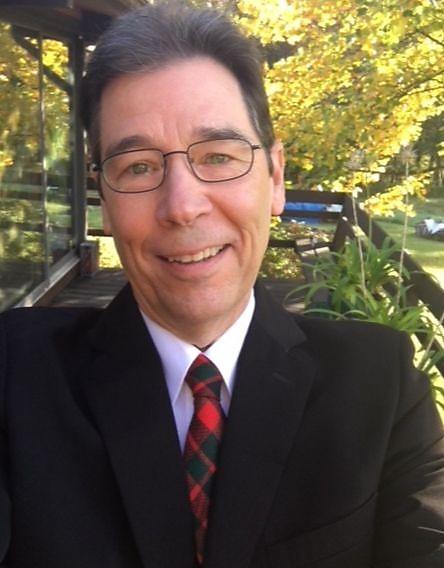Men in Early Childhood Education: My Interview With Professor William Strader From the New England Symposium on Play by Mike Prochaska

Professor William H. Strader is a coordinator for the New England Symposium on Play and founding facilitator for the Student Interest Forum of the National Association for the Education of Young Children (NAEYC), as well as the Men in Early Childhood Interest Forum and the Play Policy and Practice Interest Forum. “Currently my work has been presenting and sharing my work-related ‘Play in the Development of Young Children,’ through the New England Symposium on Play. In addition, I consult with Grounds For Play, a division of Playcore, which has its corporate offices in Chattanooga.” Read on to learn more about Professor Strader...
Q. How did you get into Early Childhood Education?
“I have always been interested in children and even babysat in high school from infants to school age kids. My undergraduate degree was in Psychology, and I was even published in the Journal of Psychology as an undergraduate student, conducting a study of self-perception in infancy, under the guidance of Dr. Jane Dickie.
“My years have taken me from directing teaching in Migrant Child Care Programs (Michigan), Inner City Children’s Mental Health Programs (Newark, N.J.), Head Teacher/Director of the Hyannis Child Care Program, Head Teacher Special Instructor, University of Rhode Island Child Development Center, to Advisory Board work on a number of early childhood programs, into a diversity of colleges and universities teaching, conducting research, developing an advanced degree program in Early Childhood Administration and Leadership, etc.”
Q. What advantages do men have in Early Childhood Education?
“Men have always been a minority in early childhood programs from my historical perspective, there were no men in any of the programs I taught in until 1978. I was very fortunate to have two other male teachers with me in the Hyannis Child Care Programs … A rare occurrence at that time! During those years, single-parent family were the ‘norm,’ and how often was I called, ‘Mom’ while teaching and working with the children! Seeing and modeling of appropriate care, nurturing, support and teaching from a male teacher. (Yes, men can be caring, role models of healthy human development!)”
Q. Why is play important for children?
“An awesome question, and I mean AWE-SOME! Social, emotional, cognitive, linguistic, motor development AND values are all part of the play picture! Curiosity, fun, enjoyment, pleasure, laughter, silliness and joy all come out in play. Play is critical in all stages and ages of our development from infancy through adulthood and even in our senior years.”
Q. What about outside play. Is it important?
“All play is important. Outside play provides greater freedom, nature and the natural world are so much part of our lives, whether it is within the context of urban, suburban or rural community structures. ‘Open the door, and let’s go out!’”
Q. What is your favorite activities to do with your kids?
“I’m into whatever they are exploring – blocks, art, music, movement, games, play dough, dramatic play, sand/water table … I like to share what I am observing with the children, and talking about the interesting things I’m seeing children involved in. I generally wait to be asked if I want to play something with them.”
Q. What about roughhousing with kids?
“Yes, depending on what kind of roughhousing is going on. They have set the safe rules, and made sure people know it’s FUN roughhousing, but are reminded, sometimes people may get ‘bonked’ or bumped, so please understand that!”
Q. What are your feelings on risky play?
“Let’s define ‘risky?’ Are we on the 19th story window ledge? Are we playing with the live alligators? What is risky? We take into consideration, if the 6-year-olds are now swinging in the swings and doing their daring leap off at full height apex! Yeeeeeeaaaaaaaaa! Are they skilled and physically adept enough to handle the height, the leap, the landing? WHOA! Can they comfortably handle the ‘risks,’ whatever they may be?"
Q. Anything inspiring to tell anyone thinking of going into this field?
“Yes. It is an incredible field to watch and be part of young children’s growth and development – all FIVE developmental domains PLUS values – and all through PLAY. Can you handle it? Can you understand the rapid changes, developmental challenges, the wondrous and wonderful developmental ages and stages the are actually right in front of you every day in the early childhood education setting? And all through play!"
Q. Anything else you would like to share about working with kids?
“If you don’t enjoy the wonders, the joys, the silliness, the emotions, the diversity of children’s play, and the remarkable workings of human growth and development through play, think about other ways to spend your life’s work! Children totally rock!
“I am passionate about our future leaders in early childhood education, thus, my years at colleges and universities, two year, four year, graduate and doctoral programs that culminate in remarkable wonderful people who want to spend their lives supporting healthy growth and development through play! Ka-BAM!"













start discussion